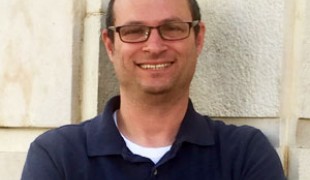- 5466
- 375
- 8
- 6
- 0
- Help Ukraine
About the solution
Freddie Howells’ great aunt is 88-years old, suffers from dementia and lives alone at home. But the family was increasingly worried about episodes where she had let strangers inside the house. “I was concerned about the fact she never knew if people visited and had a lot of cold callers and let people in. The next thing, she's spent £120 on insurance, had a washing machine and signed up to anything”, Freddie’s mum explained.
So, at 12 years of age, Freddie decided to take action and create a solutions for the problem. "He's always been creative but this is his biggest project. When it comes to tech, he likes to solve a problem", says he’s mum.
Freddie created a facial recognition system called Door Pi Plus. The system has motion sensor attached to the front door, that detects one someone gets close. When that happens, the microcomputer that control the system activates the camera mounted on the door to take a picture of the visitor. Then, the system runs the picture through a database of “know” faces, which includes friends and family members.
To make sure the system is fail-proof, Freddie added a two-step authentication procedure where in, if a face is recognized, the person is then asked to scan an ID tag. If bouth the picture and the ID card are approved by the system, the door unlocks and the person is allowed to enter. f not, the door stays locked and an alert is shown that prompts the visitor to call a specific member in order to ask permission to enter.
Freddie has learnt coding at a very young age, as his mother explains: “He taught himself how to do it. He had a coding club at primary school so he had basic computer skills.” With his invention, Freddie won the Young Innovator category at the Collaborate to Innovate Awards and the Junior Engineer category at The Big Bang Competition.
Adapted from: https://www.walesonline.co.uk/news/wales-news/usk-dementia-invention-fre...
https://www.itv.com/news/wales/2019-03-13/schoolboy-invents-home-securit...
这些解决方案不应包括使用药物,化学品或生物制品(包括食品);创伤性设备;冒犯性的,商业或内在危险的内容。该解决方案未经医学验证。请谨慎进行!如果您有任何疑问,请咨询健康专家。
DISCLAIMER: This story was written by someone who is not the author of the solution, therefore please be advised that, although it was written with the utmost respect for the innovation and the innovator, there can be some incorrect statements. If you find any errors please contact the patient Innovation team via info@patient-innovation.com
-
-
998
-
0
-
21544

跟踪自闭症儿童的系统
CAREGIVING
COMMUNICATION: Communicating, whether by speaking, listening, or other means
Social interaction
Autism
Assistive Daily Life Device (to help ADL)
Body-Worn solutions (Clothing, accessories, shoes, sensors...)
App (Including when connected with wearable)
Anxiety
Difficulty concentrating or making decisions
Social withdrawal or isolation
Restlessness or feeling slowed down
Loss of interest or pleasure in activities (anhedonia)
Promoting self-management
Managing Neurological Disorders
Preventing (Vaccination, Protection, Falls, Research/Mapping)
Caregiving Support
Child and Adolescent Psychiatry
Medical Genetics
Neurology
Pediatrics
Psychiatry
Israel
-
-
-
806
-
0
-
17661

Proloquo2Go – App to help people communicate
CAREGIVING
COMMUNICATION: Communicating, whether by speaking, listening, or other means
Social interaction
Paralysis
Autism
Cerebral Palsy
Brain Stroke
Brain Injury (Abscess, Brain Barrier Defect, Brain Contusion, Brain Hemorrhage, Brain Edema)
Assistive Daily Life Device (to help ADL)
Assistive Technology access
App (Including when connected with wearable)
Tremors
Muscle cramps or spasms
Difficulty coordinating movements
Muscle weakness
Difficulty speaking or understanding speech
Trouble with fine motor skills (e.g., writing, buttoning clothes)
Twitching or involuntary movements (myoclonus)
Acquired language impairment (Aphasia)
Promoting self-management
Managing Neurological Disorders
Building Supportive Community Relationships
Promoting inclusivity and social integration
Improving Speech and Communication
Caregiving Support
Clinical Pathology
Medical Genetics
Neurology
Pediatrics
Rheumatology
Netherlands
-
-
-
630
-
2
-
10124

Man develops digital memory aid to help his mother-in-law who has dementia
CAREGIVING
COMMUNICATION: Communicating, whether by speaking, listening, or other means
Dementia (Alcoholic Dementia, Vascular Dementia)
App (Including when connected with wearable)
Assistive Daily Life Device (to help ADL)
Anxiety
Difficulty concentrating or making decisions
Social withdrawal or isolation
Loss of interest or pleasure in activities (anhedonia)
Fatigue
Sleep disturbances
Enhancing Mental Health
Preventing (Vaccination, Protection, Falls, Research/Mapping)
Caregiving Support
Neurology
Psychiatry
United States
-
 zh
zh